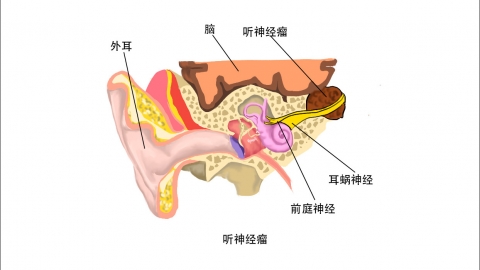What are the common causes of vestibular dysfunction?
Generally, common causes of vestibular dysfunction mainly include rapid postural changes, prolonged mental stress, otolith disease (benign paroxysmal positional vertigo), Ménière's disease, and vestibular neuritis. Patients may choose medications such as betahistine mesilate tablets, diphenidol hydrochloride tablets, and ribavirin granules to improve symptoms, with specific explanations as follows:
1. Rapid Postural Changes
Sudden movements such as standing up quickly or turning the head can cause incoordination between the motion signals sensed by the vestibular organs and visual signals, leading to transient vestibular dysfunction, dizziness, and visual darkening. In daily life, sudden and rapid postural changes should be avoided. When getting up, sit up slowly first, stay seated for a few seconds before standing. Additionally, balance training can enhance vestibular adaptation and reduce symptom occurrence.

2. Prolonged Mental Stress
Long-term anxiety and stress can affect the nervous system's processing of vestibular signals, leading to abnormal vestibular regulation, accompanied by dizziness, nausea, and balance instability. Stress should be relieved through activities like exercise or listening to music, maintaining regular rest patterns, and avoiding staying up late. Under a physician's guidance, medications such as oryzanol tablets, vitamin B1 tablets, and Anshen Bunaor liquid may be taken to regulate nerve function and improve vestibular dysfunction.
When otoliths detach and enter the semicircular canals, they stimulate the hair cells of the semicircular canals during head movement, interfering with vestibular signal transmission and causing brief episodes of severe vertigo, making it a common pathological factor. Treatment should be performed by a physician through otolith repositioning maneuvers. If dizziness persists after repositioning, medications such as diphenidol hydrochloride tablets, betahistine mesilate tablets, and dimenhydrinate tablets may be used under medical guidance to inhibit vestibular nerve excitation and relieve discomfort.
4. Ménière's Disease
Endolymphatic hydrops in the inner ear membranous labyrinth compresses the vestibular organs, causing vestibular dysfunction, recurrent episodes of vertigo, tinnitus, and hearing loss, with more severe symptoms compared to otolith disease. Salt intake should be restricted to avoid exacerbating fluid accumulation. Under medical guidance, hydrochlorothiazide tablets, betahistine mesilate tablets, and dexamethasone tablets may be used to reduce inner ear fluid accumulation, improve microcirculation, reduce inflammation, and alleviate vestibular dysfunction.
5. Vestibular Neuritis
A viral infection affecting the vestibular nerve causes nerve edema and functional impairment, leading to persistent vertigo, nausea, and balance disorders, making it a rare but severe pathological factor. Under medical guidance, ribavirin granules, acyclovir tablets, and mecobalamin tablets should be used for antiviral treatment and nerve nourishment. If vertigo is severe, promethazine hydrochloride injection may be used short-term to relieve symptoms, combined with vestibular rehabilitation training to promote functional recovery.
In daily life, excessive fatigue should be avoided to reduce the burden on the vestibular system. Prolonged head-down postures and head rotations should be avoided to reduce triggering factors. A light diet is recommended, avoiding spicy and irritating foods. Regular ear examinations should be conducted to detect and treat ear diseases promptly, maintaining vestibular health.









